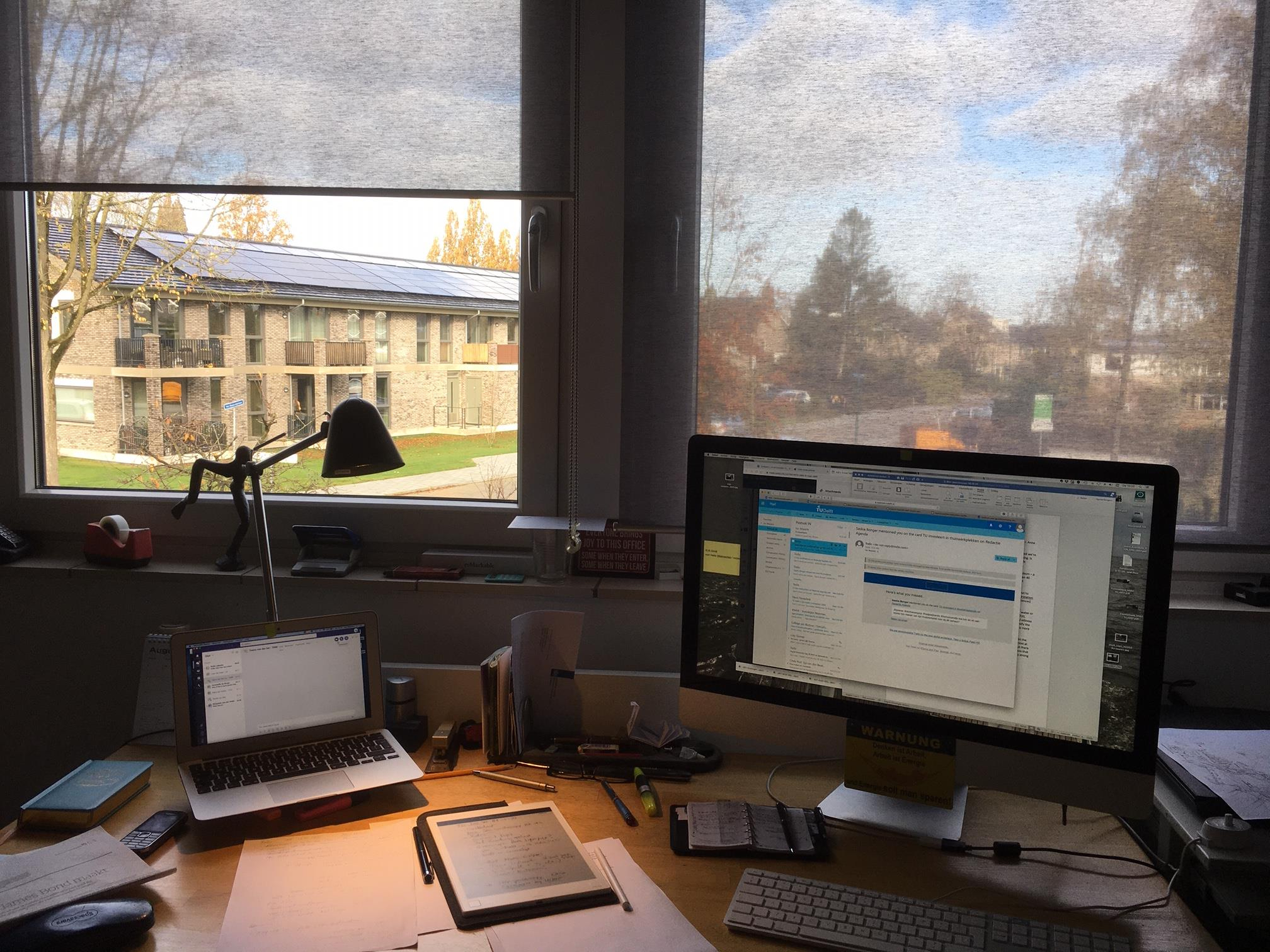Now that we will have to work from home longer, TU Delft is reserving money for ergonomic work spaces at home. The scheme is expected to start at the end of November.
Employees can use a checklist to see if they qualify for an ergonomic workspace at home. (Photo: Jos Wassink)
The time of ad hoc measures has passed, rationalises TU Delft, so structural measures are needed to ensure that home working meets the criteria of the Arbowet (Dutch occupational safety and health act). TU Delft is thus reserving between EUR 940,000 and EUR 1.48 million to purchase and ship adjustable desks and office chairs. Employees can borrow these throughout the duration of the corona crisis.
They can use a checklist to see if they qualify for an ergonomic workspace at home. The first basic criteria is that they need to spend at least two hours a day at the computer. They also need to not be in possession of an adjustable desk of at least 120 by 80 centimetres and an office chair that matches their physical proportions. After consultation with their supervisors and, if relevant, after consulting a workspace expert, staff members can submit a request. The requests will probably start being accepted at the end of November.
The ICT Department is replacing 700 old laptops
TU Delft’s initial estimate is for 2,000 ergonomic workspaces. This is a first estimate and not a maximum, reassures Human Resources Director Ingrid Halewijn who is leading the project. Over time, TU Delft can see how much interest there is. “We assume that many employees who regularly worked at home before, already have a workspace.”
This arrangement is not only about desks and chairs, but also about keyboards, mouses and laptop stands or external monitors which are obligatory. On top of this, the ICT Department is replacing 700 old laptops that are not suitable to run Windows 10 and are thus less secure. This will cost an additional EUR 560,000 to EUR 850,000, depending on the model.
The Works Council has already agreed to the plans and has advised TU Delft to also look at any additional costs incurred by employees working at home such as their internet connection. According to Halewijn, this is already being discussed with trade unions and the Tax Authority. She points out that staff are already receiving monthly reimbursements of EUR 20 for commuting costs and EUR 27 from the Werkkostenregeling (Work-related Costs Scheme).
In its advice, the Works Council has underlined the importance of measures that support home workers socially and emotionally. Halewijn says that TU Delft wants to fulfil its duty of care as much as it can. She points to the website that was built to support staff in corona times. She also believes that the role of the supervisors is important. “They have the essential task of keeping in touch with all their team members.”
Do you have a question or comment about this article?
s.m.bonger@tudelft.nl


Comments are closed.